The fusion of imagination and space, the transformation of identity, the endless intimacies, and the endless detachment allow us to peep into their emotions and dilemmas. This is a love story about playing.
2-24-2023
The short film Daughter and Son (Qin mi, 2022) follows a couple of laid-back and casual lovers exploring a rare and delicate balance between life, creation, and pressures.
The Best New Year Gift
Cheng Yu: Hello, I am Cheng Yu, the director of "Daughter and Son (Qin mi)", a short film shot in Changsha at the beginning of 2021, and finally started to meet the audience in 2022 after a relatively long production and preparation phase.
DZO: Was there a clear plan for Daughter and Son to get into film festivals?
Cheng Yu: Actually, there was no clear plan. Our film’s length is not very advantageous because it is too long, and in terms of the length limit of many film festivals, we are simply not even qualified to submit. We only see if there are suitable film festivals after the film has been produced, and then we slowly go into pitching.
DZO: I heard that Berlinale also contacted you by email.
Cheng Yu: Before I found out that "Qin mi" had been selected for the Berlinale, I received an email from Berlin one day, probably saying that they didn’t seem to understand the English subtitles because the film involved a lot of personal pronoun changes. I asked about the deadline and panicked when I heard that the best day was today, so I quickly asked a friend to re-proof the subtitles. At that time, I vaguely felt that the film might make it to the further round of the competition. When I received the news of the Berlinale selection just before New Year’s Day, I felt like I had received a New Year’s gift.
The short film "Qin mi" also won the Jury Prize at Hishorts! Film Festival and was selected for FIRST International Film Festival, NOWNESS Short Film Awards, Beijing International Short Film Festival and other film festivals.
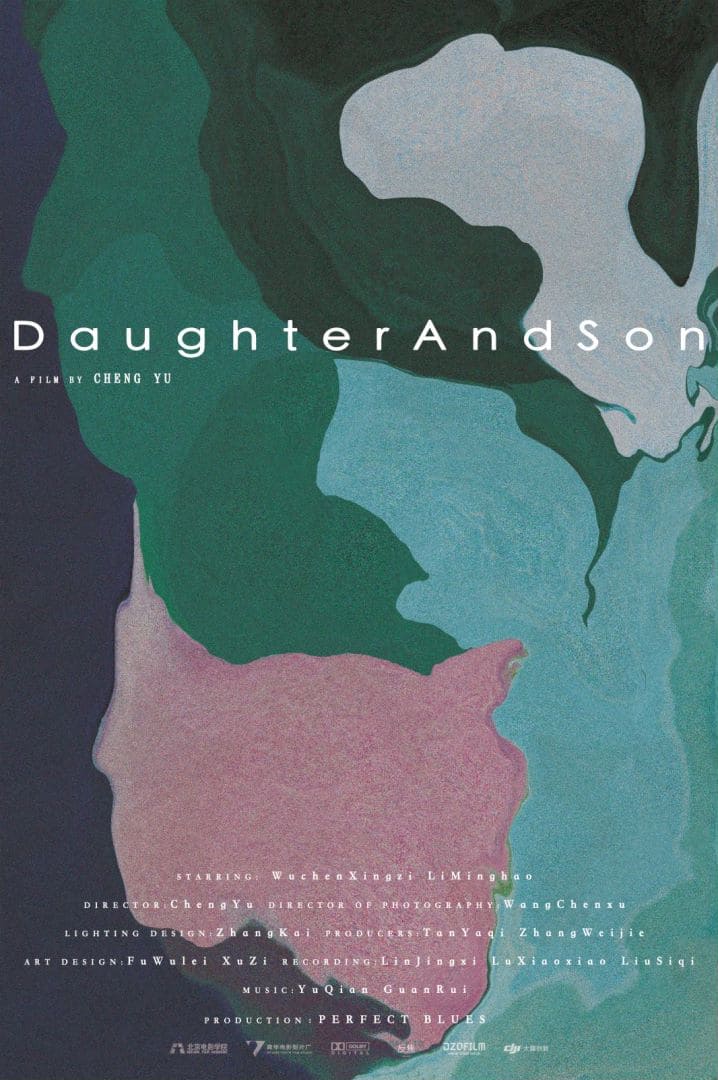
Two Versions
DZO: The film that won the award at HiShorts! was the 40-minute version, and the one that was selected for the Berlinale Shorts was the 30-minute version. What is the difference between these two versions?
Cheng Yu: When I finished the whole production, the film was 40 minutes long, which is the version I prefer. We didn’t think there would be a 30-minute version of this film, but it did face a lot of pressure in the post-submission process. I was actually a little bit unsure at first, because it was a 10-minute cut from what I thought was a very complete film. I was actually very nervous until the 30-minute version was released at the FIRST premiere. That was the first time I watched it after a while, and the experience was much better than I had expected. That’s why I was so excited and expressed directly on stage that I thought this version was quite good. So that I submit the 30-minute version for the Berlinale.
Cheng Yu: What parts did we have to take out when we cut from 40 minutes to 30 minutes, actually, after serious consideration, we finally took out some parts that were not directly related to the main story and some parts that looks more visual. One is they were in their apartment, and they turned off the lights, using the Wood’s lamp to look around their living space in the dark. The end of the film is actually in the basement of the heroine’s place of work, where renovations are underway, and they go down into the basement with a flashlight to explore a ruined space like this. These two spaces are intertextual. Their relationship could unexpectedly change in that space, which may seem strange, but I prefer this part. The endings of the two versions are actually quite different.
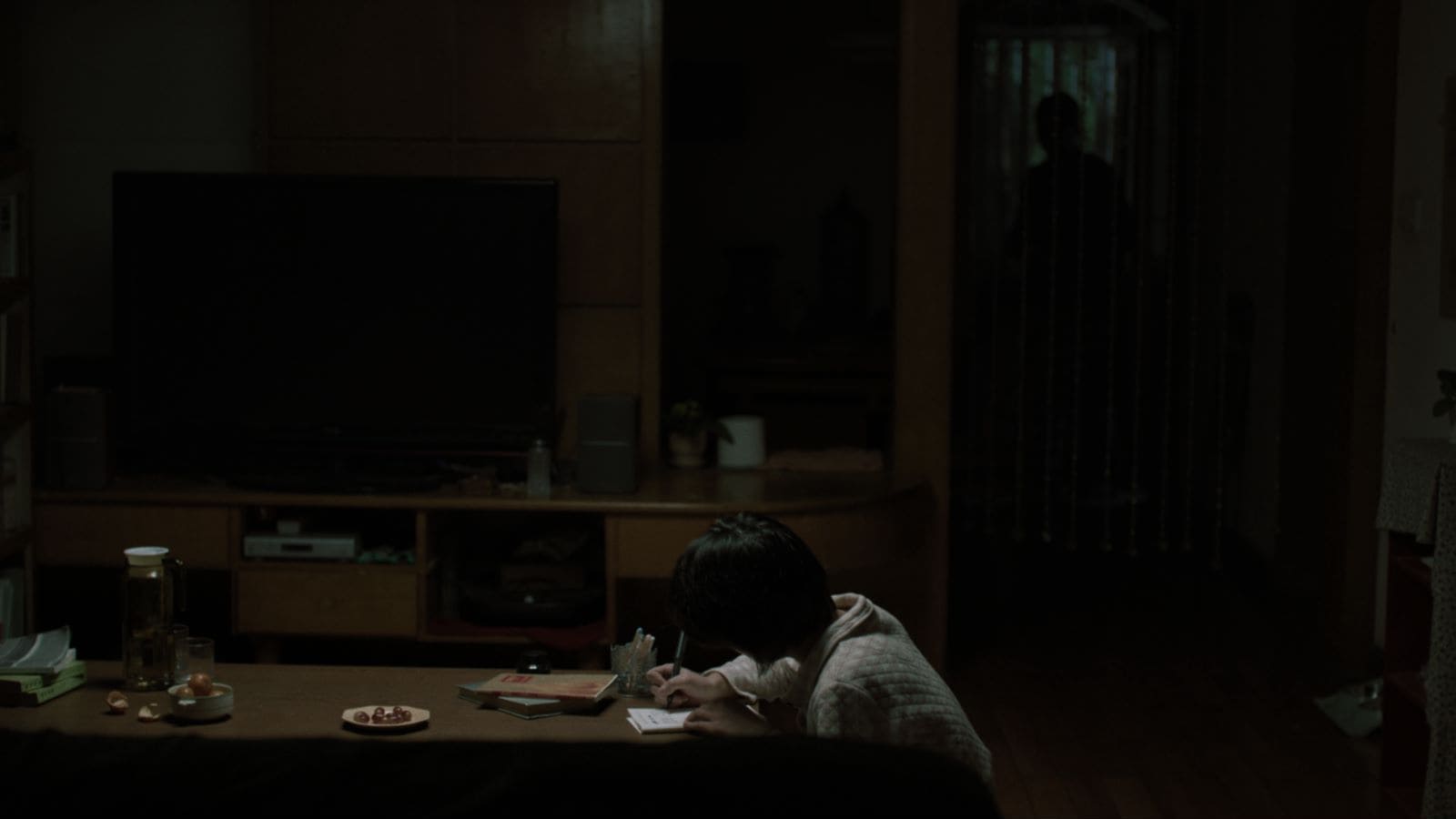
The script also needs to grow
DZO: Why did you choose “Qin mi” (meaning intimacy, close in Chinese) as the title of the film? What is the difference between it and the original script?
Cheng Yu: It’s fun to say, the original script is a completely different story from the current one. The previous title submitted to DZOFILM is "Yun de ying zi (The Shadow of cloud)", which can be explained as the heroine of the current version(Qin mi) once in high school may have happened some things.
Cheng Yu: Then we changed the heroine’s age as well as the story’s overall direction. The setting of "Qin mi" became that the girl had been working for a while, living with her boyfriend, and then her mother was coming to visit her.
Cheng Yu: I didn’t want to make a film that had no distance from reality at all, so I kept thinking about how to create a sense of distance within the framework of the current story. We wanted to talk about two people in an intimate relationship, but they have another identity, so after we finished the production, we felt that the film could no longer be called "Yun de ying zi (The Shadow of cloud)" and wanted to find a title in Chinese that would suit the relationship or fit the story well. At that time, I already knew that Ryusuke Hamaguchi had a film called "Intimacies" (2012), but I didn’t expect that a film called "Close" (2022), directed by Lukas Dhont would come out of Cannes just after we had made this film, so it did surprise me that the names were so similar.
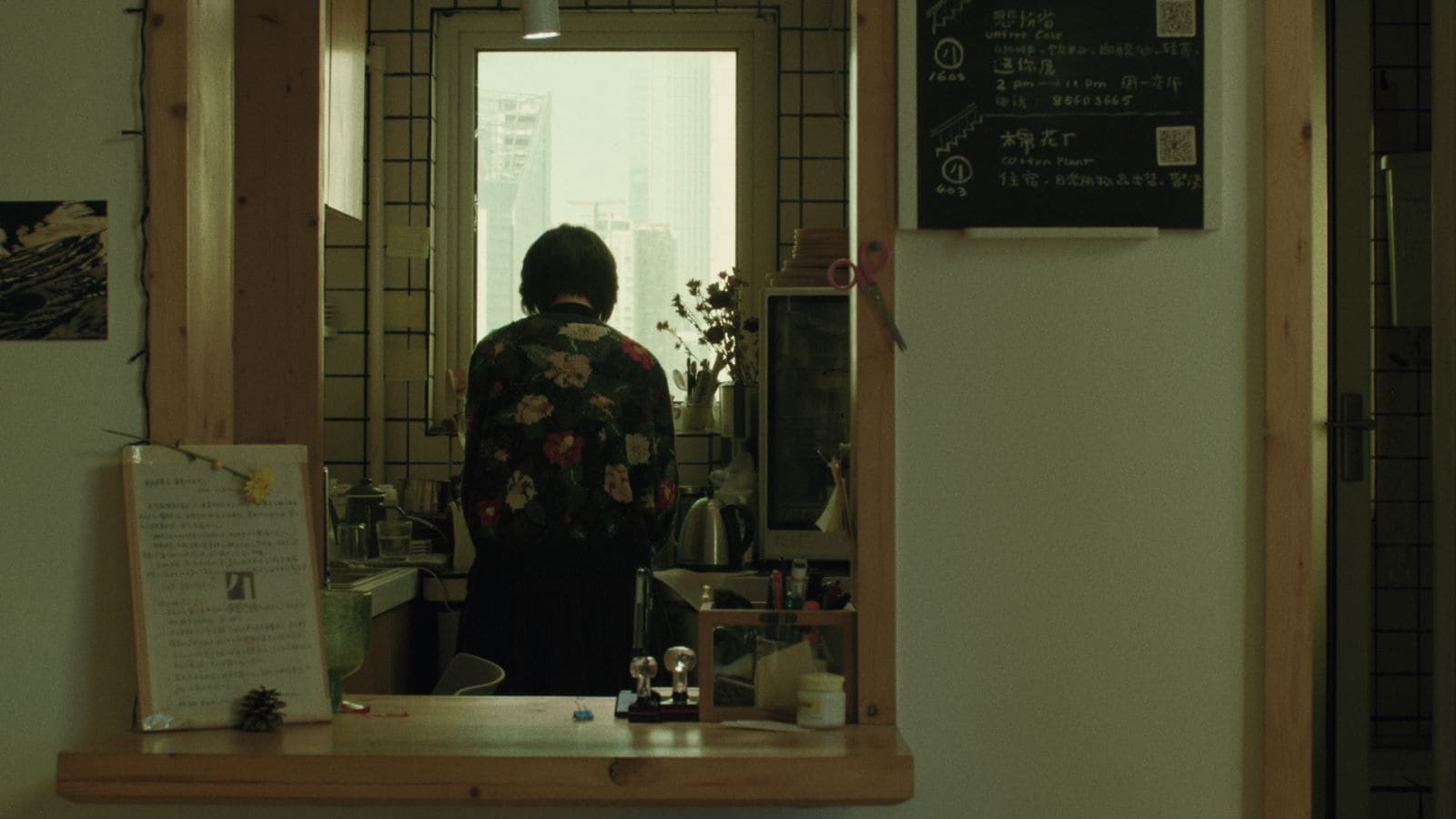
Daring to Break the Norm
DZO: When you were filming, what specific moment made you feel that you could use the creative form of role-playing?
Cheng Yu: Like I said earlier, at first the story was very traditional, the mother would really be there and then something would happen to them. The thing that made me feel dissatisfied was that it was too close to life, so we were thinking about how to break the story a little bit. One night in rehearsal, we were shooting the scene where they were having soup, and the male character went back in his room, and the mother was talking to her daughter. We felt that this scene didn’t meet our expectations. The mother was actually played by a non-professional actor that we found. Because she had children to take care of, we let her go home to rest. But it was close to the official shooting time, and even though the mother was not present, we still wanted to continue rehearsing.
Cheng Yu: At that time everything was still following the script, I was actually standing in the position of the camera, I looked at the back of the male actor, he was saying the mother’s lines. Suddenly I felt that, just by looking at his back, he seemed like a father. Then I suddenly felt there was something very subtle in it that was very interesting. Then I told them, "Let’s not follow the script, you will be free to play, and as long as we don’t say ’cut’, you just keep playing, we will use the camera to record it all." In the process of their performance, we turned off the lights, then turn them on, and then turn them off, then turn them on again, and in the process of constantly turning on and off the lights, slowly the two of them exchanged those lines, making it feel as if their roles became very ambiguous. This scene gave me a lot of inspiration, and then I used this idea to sort the whole script, and found a breakthrough to solve the problem that I think the original story is too close to daily life. Finally I was very excited to announce to everyone that we were going to shoot according to the new script now.
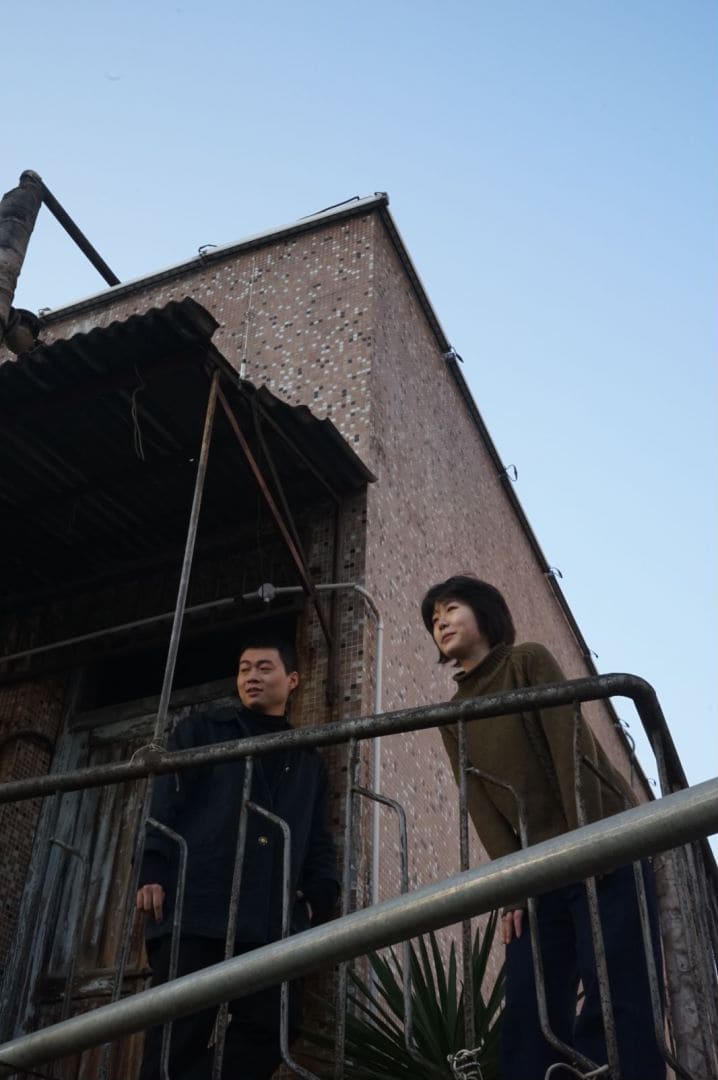
Intentional design or natural flow?
DZO: There are many long shots of objective realism in dark tones in the film, why did you choose this film language?
Cheng Yu: We actually had a very bad first day of shooting because I thought everything was too bright and too clear. Then I talked to the DOP for a long time after that night, and on the second and third day, we started to make the whole scene darker. When the whole scene is darkened, it really makes us feel more pleasant. I also invited a friend of mine, who is also a cinematographer: Huang Qian. The part about the lens would be better to be shared by him.
Huang Qian: Before the film was shot, Wang Chenxu (cinematographer for "Qin mi"), who needed to call for gear in Changsha, approached me and asked me to help him get in touch. Because this film have a lot of natural light scene shooting needs, and there would be more room to control the light with full-frame lenses. The whole set of Vespid Prime lenses are T2.1, which helped us a lot to maintain the footage and keep the light control down.
Cheng Yu: At that time, our colourist was doing the colour grading, and because he was also a director of photography, he asked what lenses we shot on. I said we shot on the DZOFILM Vespid Prime series, and he said this lens set was quite good.
Cheng Yu: About the long shots, when we were going to shoot that scene, it was night, and when we arrived at the scene, we first saw a train passing by on the right, then we walked forward and caught another train passing by on our left. Then I wondered if we could do a long shot across the entire space from left to right to connect it.
Huang Qian: The length of the train track should be tens of meters.
DZO: The original idea of the script would be closer to Hou Hsiao-Hsien’s film Café Lumière (2003). What kind of inspiration did this tribute to Yasujiro Ozu give you?
Cheng Yu: Café Lumière is a movie that, when I first saw it, the subtitles were wrong, but I didn’t realize this, and I watched it to the end. After watching it, I thought the film didn’t say anything, but I still felt it was good, and I kept wondering why it was so good to me. Then, with the correct subtitles, I watched it again, and I realized that it actually had some hidden narrative in it. But when I watched it the first time, it wasn’t the hidden narrative that directly stimulated me, but something else. I kept wondering what gave me such a feeling and whether I could make such a movie too.
Professional or non-professional actor
DZO: How did the lead actor, Lee Minghan, go from being an editor behind the scenes to being an actor in front of the cameras?
Cheng Yu: When we decided that the setting of the story was that the girl had grown up and was of a similar age to us, we wondered who should play the role of the girl’s boyfriend, and then I considered two people, one was Minghan and the other was Xue Xuchun, one of the main actors in A New Old Play(2021). At that time, I was thinking which one of them would be more suitable, and when we finally decided who would play the female lead, I thought that Minghan and Xingzi (the female lead actress) might be a better match. Minghan had played some minor roles before, so it might be a little stressful for him to play the lead role all of a sudden. So he and Xingzi are actually in a similar situation, both being non-professional actors participating in this film.
DZO: The first person on the list of ’special thanks’ for the film is the director of Accordion(2021), Emetjan Memet, how did he help you with the film?
Cheng Yu: I was in the same class as Emetjan at BFA (Beijing Film Academy), and we lived in a dormitory with bunk beds. I was the cinematographer when I was shooting movies, so I recommended myself to Emetjan. I said you can ask me to be the cinematographer if you shoot assignments next time. Because at that time, we both shot assignments at a very low cost—maybe a few hundred RMB for a film—I wasn’t worried about messing up his work. Later he said he was going to Xinjiang to make a film, and when I heard that he was going to Xinjiang, I was a little worried that I would mess up his film, but he said, "It’s okay, we’ll shoot it as an assignment anyway, and you can even go there to shoot an assignment." Then the two of us took a train to Yili, and he shot "Blessed Winter" (2020) and I shot "Pomegranate" (2020). Then, when it came time to hit the graduation movie, we actually had no way to help each other because we were shooting close to each other. But in the preparation stage, we were looking for producer, sound recordist at the same time, and he helped me a lot at that time.
DZO: It is said that you found the main actress, Wu Chen Xingzi, in Changsha at the Mutian Bookstore? She is also a projectionist, right? How do you usually work with actors?
Cheng Yu: Xingzi was working as a clerk at Mutian Bookstore at that time, but she is indeed a projectionist now as well, because after "Qin mi", Xingzi and the leading actor, Lee Minghan, they set up an independent screening organization called "Not to Screening", also in Changsha.
Cheng Yu: I may work with professional actors in the future. But at present, I think it’s easier for me to work with non-professional actors than professional actors to recreate a role.
Cheng Yu: Because I imagine and look for (actors) when I write the script or after I finish it, I may come across a certain type or person around me whose appearance and personality traits are similar to the character.
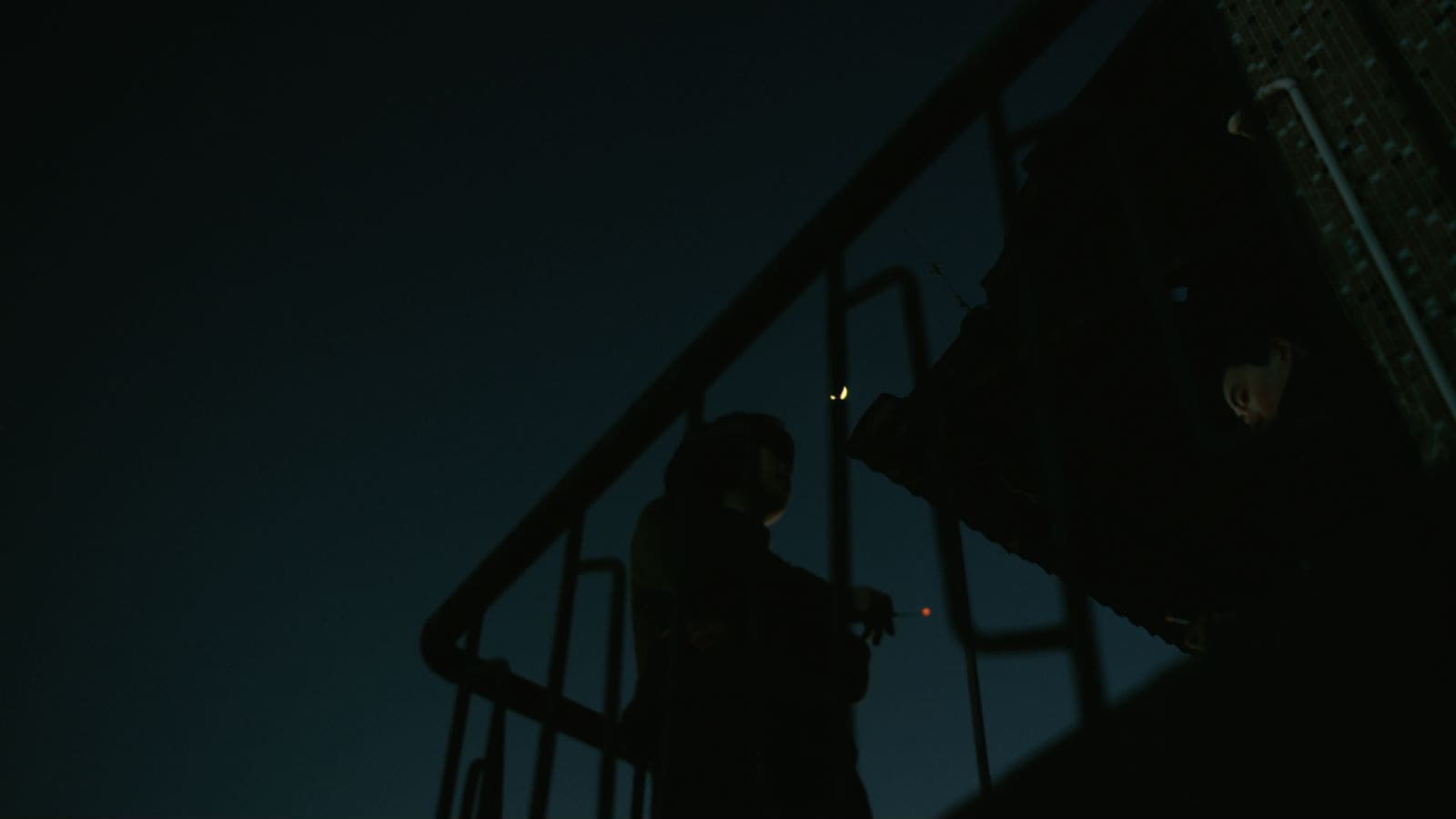
Manga, shorts and features
DZO: I heard that Satoshi Kon’s "Perfect Blue" has influenced you a lot, and you also draw manga, can you share with us your next projects or plans?
Cheng Yu: I think watching "Perfect Blue" has interested me in live-action movies. I’ve actually been planning a manga, but it’s been difficult to produce, but I will definitely finish it. I feel manga and film are two systems that are not very similar. I really wanted to draw manga because of a Japanese manga artist named Yoshiharu Tsuge. Before that, it was probably because of manga artists like Inoue Takehiko. What attracted me to them was that their manga achieved a certain characteristic of this medium. Speaking of short films, I’ve actually finished one now, but it’s still in post-production. Next, I want to see if I can make a feature film at a relatively low cost.
